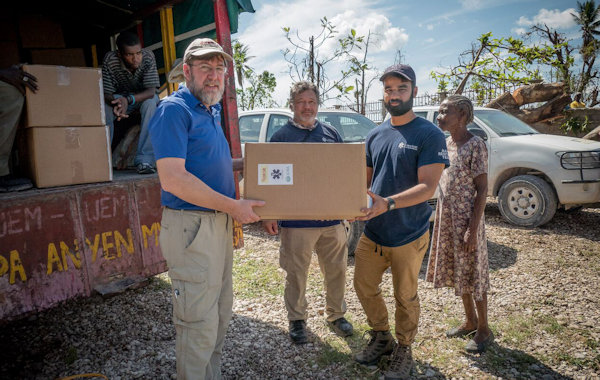Through best practices, UMCOR helps partners move beyond mere “meaning well.”
REV. JACK AMICK
United Methodist Committee on Relief
My grandmother used to say that one of the worst things that can be said about a person is that “they mean well.” Yoda said similarly, “Do or do not. There is no try.”
I like to say about the staff of the UMCOR Disaster Response unit that we help partners “do good well.” Some of our partners come to us with ideas that are clearly defined. They may just need a clarifying question or two. Often, we can learn from them. In other instances, partners approach UMCOR with ideas that require help to develop. Our staff coaches them by sharing best practices, tips, and explaining standards that have been established internationally for humanitarian assistance. In some cases, we help partners move from meaning well and trying to do good to doing good well.
For some partners, the grant they receive from UMCOR may be their first foray into disaster response. In those cases, especially, we work to help them improve their understanding of best practices.
“And so, for 77 years, UMCOR has worked to ‘alleviate poverty without regard for race or creed.’”
Sharing best practices may mean helping partners find culturally acceptable food rations that are also consistent with caloric intake standards as recommended by the World Food Program, or daily water consumption guidelines suggested by the Sphere standards, a joint consortium of nongovernmental organizations (NGOs) that work together to ensure excellence in humanitarian assistance. Or maybe UMCOR demonstrates how to select beneficiaries in a way that is impartial and identifies the most vulnerable in a community. Or perhaps we introduce a partner to the principles of protection in humanitarian assistance.
We listen to partners, building on their ideas. We learn. And we share what we’ve learned with others.
Ultimately, we do all this because, on behalf of The United Methodist Church, UMCOR cares for the vulnerable and weak in this world. We do this because Christ told us to care for the least of these. And so, for 77 years, UMCOR has worked to “alleviate poverty without regard for race or creed.”
Not too far back in our history, UMCOR would have shipped food or other items from the United States to help survivors of disasters. But we’ve learned that practice is not the best for the community being served. Shipping from the US can sometimes take up to eight weeks. In that time, what is required on the ground can change dramatically. Instead, we encourage partners to purchase supplies locally or regionally. In some cases, we support partners as they give vouchers or cash to beneficiaries so that they, themselves can select the food they want from local shops—in cases where markets are operating.

The three main humanitarian principles that undergird all our work are that the dignity of disaster survivors should be maintained, that we do no harm, and that we serve with impartiality. I have heard it said that “humanitarian” assistance is secular and not Christian. On the contrary, well-implemented humanitarian assistance can be a real and tangible sign of unconditional love. It can be, dare I say, sacramental. It can be a physical reminder that God loves all.
Read more and view photos of the three main humanitarian principles listed by Jack Amick.
Last Updated on May 1, 2017

